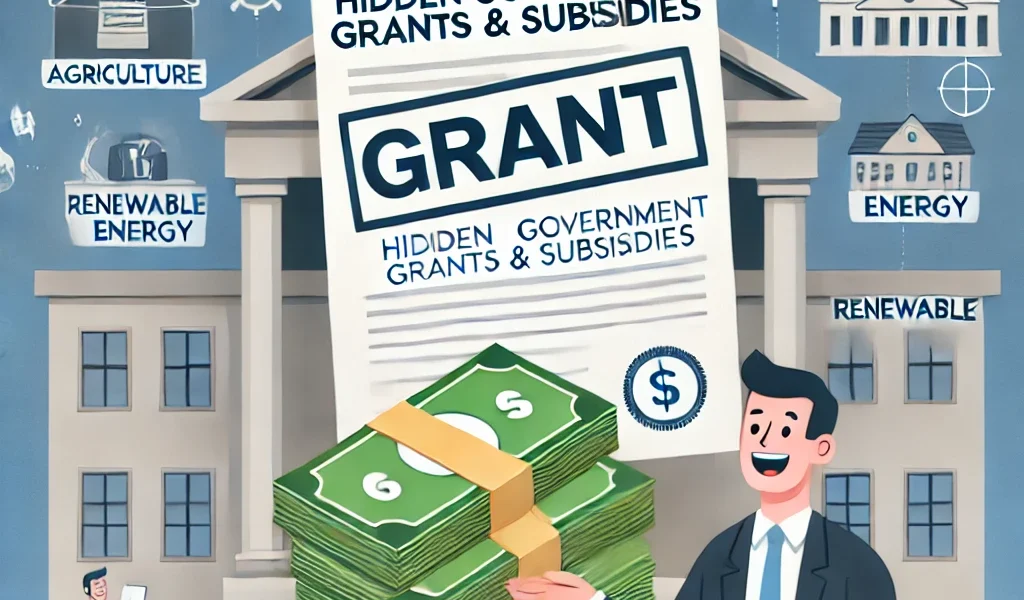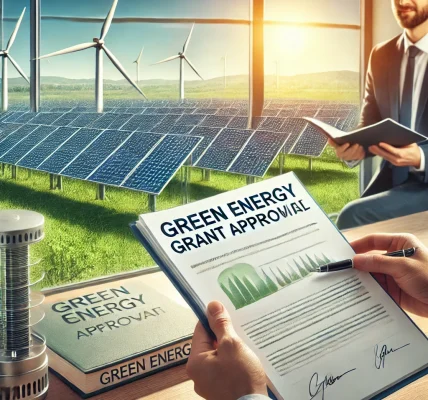Government grants and subsidies provide crucial financial assistance for individuals, businesses, and organizations. While many people are aware of well-publicized programs, several lesser-known grants can also provide valuable support. Understanding these hidden opportunities can help you maximize available resources and improve your financial position. In this guide, we will explore some of the most overlooked government grants, eligibility requirements, and how to apply.
Understanding Government Grants and Subsidies
A government grant is financial aid provided by a government agency to individuals, businesses, or non-profit organizations for specific purposes, such as education, business growth, or renewable energy. Unlike loans, grants do not require repayment if the recipient meets all compliance requirements. Subsidies, on the other hand, are financial aids designed to reduce costs in sectors like agriculture, housing, healthcare, and industry development.
Why Are Some Grants Lesser-Known?
Many government grants and subsidies remain underutilized due to:
- Lack of awareness and publicity
- Complex application processes
- Strict eligibility requirements
- Limited funding availability
By identifying these lesser-known opportunities, you can take advantage of financial aid that others might overlook.
Lesser-Known Government Grants You Should Explore
1. Rural Business Development Grants
This grant supports small businesses and rural entrepreneurs who want to expand their operations in underserved areas.
- Who Can Apply? Small businesses operating in rural areas with fewer than 50 employees.
- Grant Amount: Varies based on business type and location.
- How to Apply? Applications are typically submitted through the USDA or relevant local agencies.
2. Renewable Energy Grants for Small Businesses
Governments worldwide are promoting sustainability by offering grants to businesses investing in renewable energy solutions.
- Who Can Apply? Small business owners implementing solar, wind, or biomass energy solutions.
- Grant Amount: Up to 50% of project costs.
- How to Apply? Applications must be submitted through environmental agencies or energy departments.
3. Minority Business Development Grants
These grants assist minority-owned businesses in securing funding for expansion, technology upgrades, and marketing.
- Who Can Apply? Business owners from minority communities.
- Grant Amount: Varies based on the business sector and project scope.
- How to Apply? Apply through the Minority Business Development Agency (MBDA) or equivalent government body.
4. Women Entrepreneurs Assistance Programs
Governments offer grants to encourage women-led businesses and support gender diversity in entrepreneurship.
- Who Can Apply? Women entrepreneurs and women-led startups.
- Grant Amount: Depends on business size and industry.
- How to Apply? Applications can be submitted through business development offices or women entrepreneurship initiatives.
5. Home Renovation and Energy Efficiency Grants
Homeowners looking to improve energy efficiency or renovate their properties can access various grants.
- Who Can Apply? Homeowners making energy-efficient improvements.
- Grant Amount: Up to 30% of renovation costs.
- How to Apply? Local housing authorities or energy departments handle applications.
6. Education and Skill Development Grants
These grants assist students and professionals in funding their education, vocational training, and upskilling courses.
- Who Can Apply? Students, unemployed individuals, and working professionals seeking skill development.
- Grant Amount: Covers tuition, books, and sometimes living expenses.
- How to Apply? Applications must be submitted through education ministries or skill development councils.
7. Nonprofit and Community Development Grants
Governments offer grants to support NGOs, community projects, and social welfare programs.
- Who Can Apply? Nonprofit organizations, charities, and social enterprises.
- Grant Amount: Depends on project scope and impact.
- How to Apply? Applications are available through social welfare departments.
How to Find and Apply for Hidden Government Grants
- Research Government Websites: Check official government portals for available grants in your country or region.
- Subscribe to Updates: Sign up for newsletters from government agencies offering financial assistance.
- Consult Business Development Centers: Many government agencies have free resources to guide applicants.
- Prepare a Strong Application: Clearly outline your purpose, impact, and eligibility criteria.
- Meet Deadlines: Government grants have strict timelines, so ensure you apply within the given period.
Common Mistakes to Avoid While Applying for Grants
- Incomplete Applications: Missing documents or incorrect details can lead to rejection.
- Lack of Compliance: Ensure your business or project meets all eligibility requirements.
- Ignoring Small Grants: Many people overlook smaller grants, but they can add up over time.
- Not Following Up: If your application is rejected, inquire about the reason and improve for future attempts.
Conclusion
Hidden government grants and subsidies provide incredible opportunities for financial support in various sectors. By conducting thorough research and submitting well-prepared applications, individuals and businesses can benefit from these underutilized programs. Start exploring these opportunities today and take advantage of the financial assistance available to you.




